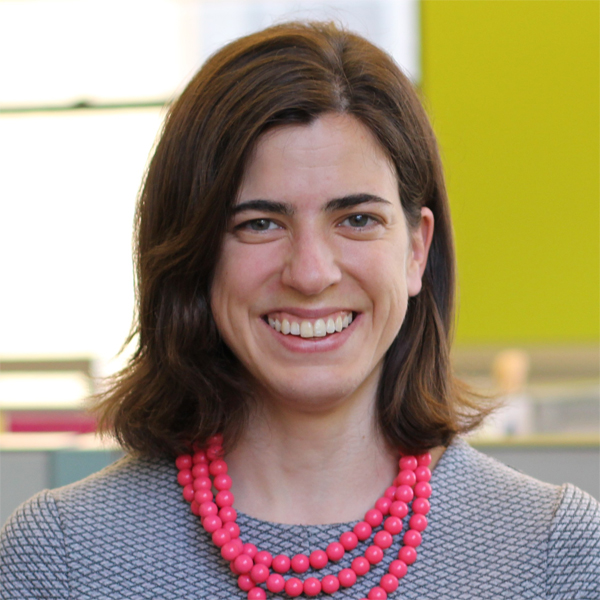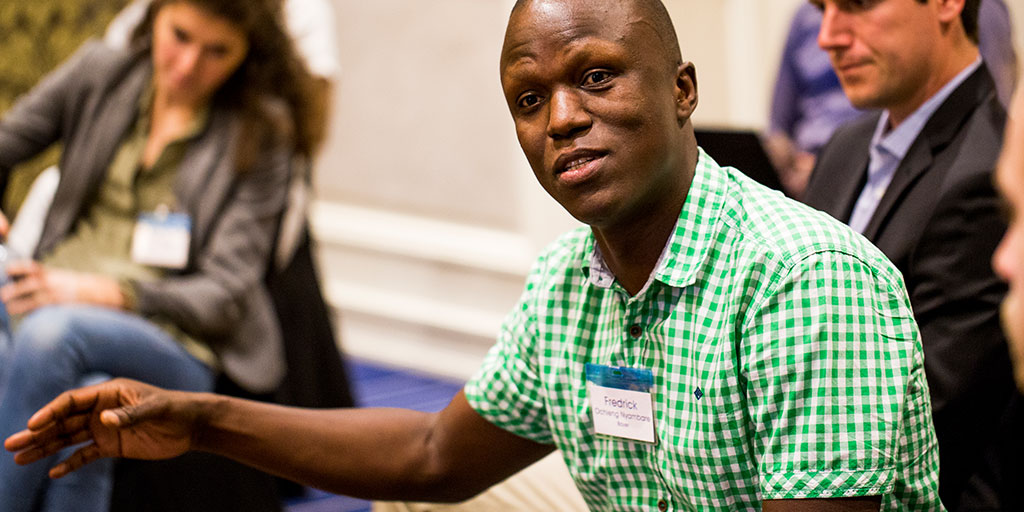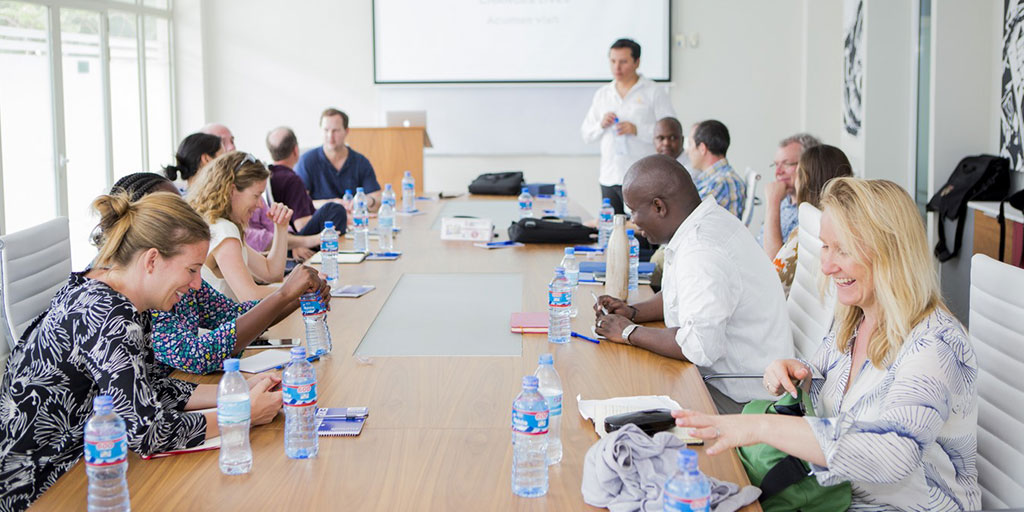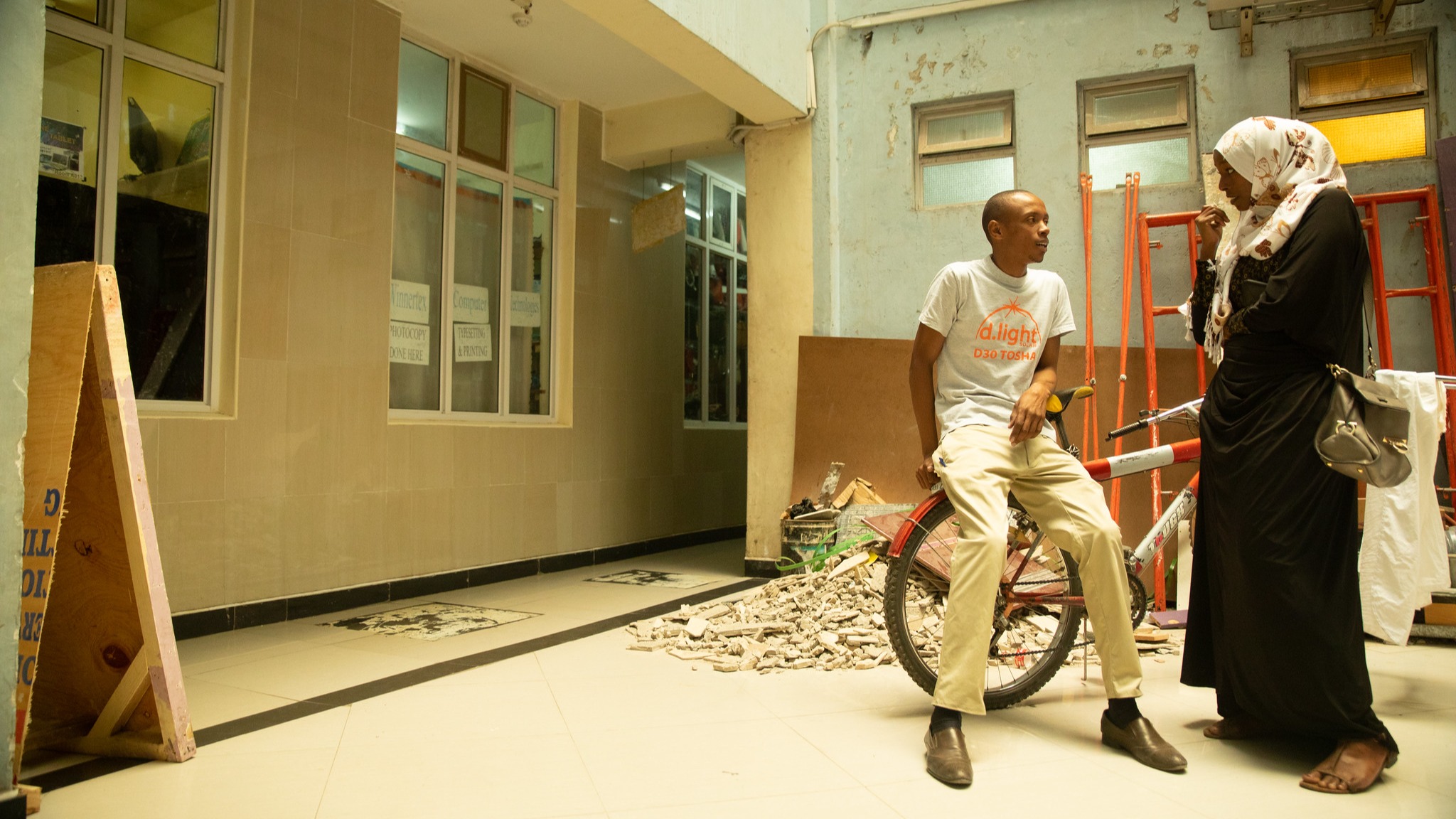Redefine Success
Must-read books for social entrepreneurs and non-profit leaders
We asked people in the Acumen community to recommend their favorite books for aspiring social innovators.
March 06, 2020
Ranging from classics to new releases and in topics from moral leadership to design thinking, we asked people in the Acumen community to recommend their favorite books to inspire and educate social entrepreneurs.
Redefine success
by Pico Iyer
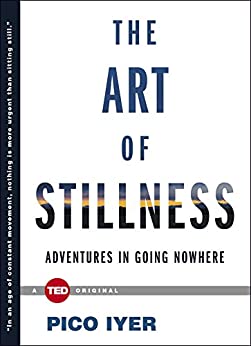
Pico Iyer has been a travel writer for many years. Most recently, he has turned his attention from mobility to stillness. In his latest book The Art of Stillness, he describes what technological overload has done to our sense of well-being, wonder and wholeness. He personally retreats many times each year to a Benedictine hermitage where he has learned to “find adventures in going nowhere.” In one of our favorite passages from the book, Iyer reflects “We’ve lost our Sundays, our weekends, our nights off — our holy days, as some would have it; our bosses, junk mailers, our parents can find us wherever we are, at any time of day or night. More and more of us feel like emergency-room physicians, permanently on call, required to heal ourselves but unable to find the prescription for all the clutter on our desk.” If you are ready to regain a sense of stillness and recalibrate your sense of balance, this book will give you much to contemplate.
By Keith Payne
Recommended by Andrea Dinneen — Behavioral Research and Designer for Common Cents Lab with Dan Ariely
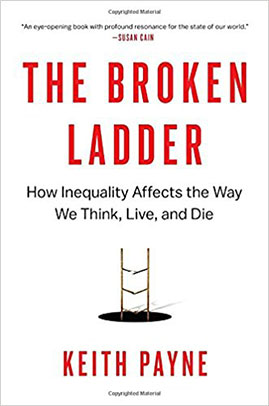
“In The Broken Ladder, psychologist Keith Payne examines how inequality divides us not just economically, but also shapes how we think, how our cardiovascular systems respond to stress, how our immune systems function, and how we view moral ideas such as justice and fairness. If you’re looking to tackle problems of poverty or inequality, this book will help give you a more nuanced understanding of the research and the reality.”
By Naomi Klein
Recommended by Nick Fitz — Research Associate at the Center for Advanced Hindsight, Duke University
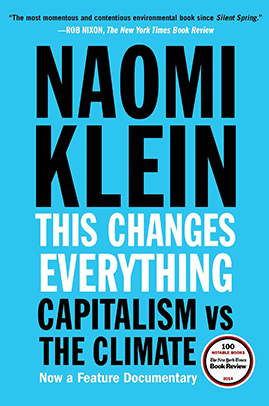
“Climate change is an increasingly pressing issue that anyone working to tackle problems of poverty needs to urgently understand. In This Changes Everything, Naomi Klein meticulously builds the case for how massively reducing ourgreenhouse emissions is our best chance to simultaneously reduce gaping inequalities, re-imagine our broken democracies, and rebuild our gutted local economies.”
By George Eliot
Recommended by Emily Esfahani Smith, author of The Power of Meaning, 2017 TED speaker, and Acumen Academy Master Class Instructor
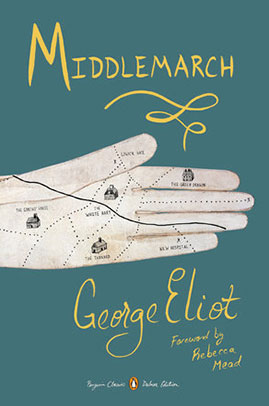
“A lot of people think that the key to leading a meaningful life is changing the world in some grand way—like by curing some disease or launching the next big company. And that’s basically what Dorothea Brooke and Tertius Lydgate think, too, in this novel by George Eliot. These two young adults yearn for meaning and want to lead epic lives. But as the novel progresses, their hopes and dreams are dashed. Even so, Eliot wants us to see that a meaningful life doesn’t have to be extraordinary or epic. Ordinary lives are also full of meaning, too. She ends the novel with one of the most beautiful lines in all of literature: “[F]or the growing good of the world is partly dependent on unhistoric acts; and that things are not so ill with you and me as they might have been, is half owing to the number who lived faithfully a hidden life, and rest in unvisited tombs.”
By Mark Stevenson
Recommended by Ting Jiang — Principal of Global Health and Development at the Center for Advanced Hindsight, led by Dan Ariely
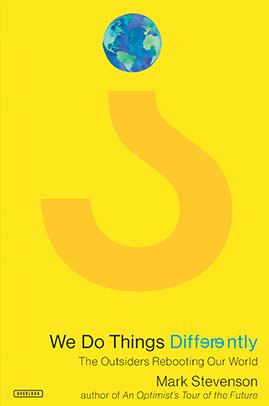
“We Do Things Differently provides a fresh look on unusual, ahead-of-our-time approaches, demonstrated by well-written fascinating stories of trendsetters in major social changes. It’s both for those who have the ambitions to change the world and those who want to have a glimpse into the future changes.”
By Debra Meyerson
Recommended by Scott Sonenshein — Rice University, author of Stretch, and Acumen Academy Master Class instructor
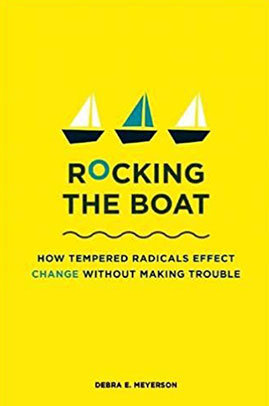
“This book addresses the challenges and solutions to being an agent of social change in an organization whose values might not be consistent with that change. It’s inspiring because it invites anyone to be a social change agent, no matter where they work. Myerson does a terrific job outlining practical strategies to engage with one’s work organization to promote change, from the least intense (and risky) to the most intense. All along, she guides us through the psychological challenges of staying true to one’s values, while working in contexts that might not (at least today) share those values. The book is also peppered with stories of social change agents who made a difference in places we might not expect. When you finish the book, you feel empowered to lead social change no matter the situation.”
by Abhijit Banerjee and Esther Duflo
Recommended by Leila Janah
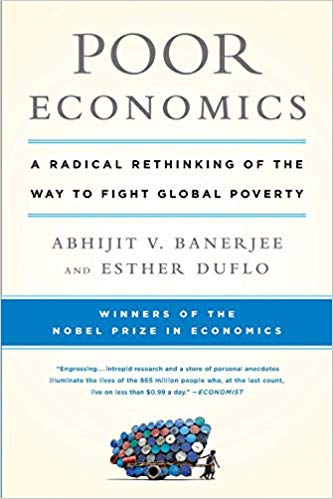
Leila Janah is the founder and CEO of Sama Group and a big fan of Poor Economics: A Radical Rethinking of the Way to Fight Global Poverty. Published in 2012, this book, written by two “practical visionaries” and economists, “examines global poverty and how it affects the decision-making ability of those who struggle with it.” Ideas from this book have shaped Leila’s approach to building Sama Group - an organization that helps people lift themselves out of poverty through digital work.
If you want to hear more from Leila, check out our Social Entrepreneurship 101 course where she shares more about Sama Group, her personal journey, and advice for anyone new to the social enterprise field.
Imagine and develop your idea
by David and Tom Kelley
Recommended by Jocelyn Wyatt
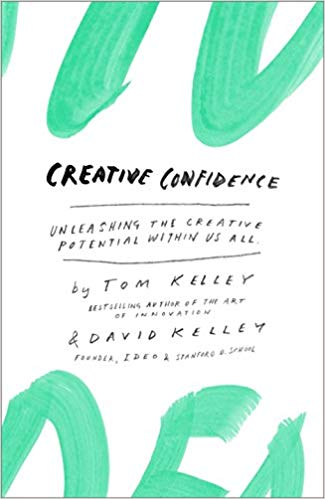
Jocelyn Wyatt, Co-Founder and Executive Director of IDEO.org, recommends Creative Confidence by David and Tom Kelley. “It’s a powerful and compelling book on unleashing the creativity that lies within each and every one of us” Jocelyn told us.
You can unleash your own creativity and learn about IDEO.org’s methods in Introduction to Human-Centered Design.
by Ricardo Levy
Recommended by Cassandra Staff
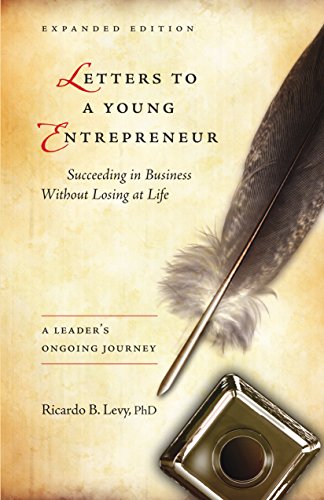
Cassandra Staff is the Program Director for the Global Social Benefit Institute (GSBI) at Santa Clara University's Miller Center for Social Entrepreneurship. Each year, she advises social entrepreneurs in GSBI’s Accelerator program and prepares them for an Investor Showcase. For those looking for inspiration along their social enterprise journey she recommends Letters to a Young Entrepreneur: Succeeding in Business Without Losing at Life. A book which she says offers “practical and caring words of wisdom from one of our most passionate mentors.”
To gain more insights from the Global Social Benefit Institute, you can register for Business Models for Social Enterprise, a course we co-developed with the Miller Center.
by Roger L. Martin and Sally Osberg
Recommended by Joyce Kim
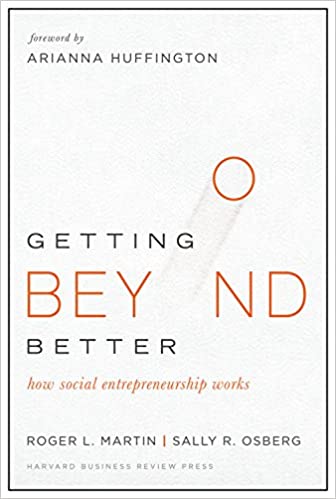
Joyce Kim, a Community Specialist at IDEO.org, recommends Getting Beyond Better by Roger L. Martin and Sally Osberg. “Social entrepreneurship and social enterprise are two terms that have gained a lot of popularity in recent times. However depending on who you're speaking with, everyone seems to have a slightly different definition,” observes Joyce. “This book provides a clear framework to understand where social entrepreneurs fit in within the social sector and also shares examples of real-life social entrepreneurs who are currently shaking things up. This book will leave any aspiring change-maker inspired.”
To join the community of human-centered design facilitators catalyzed by Joyce and IDEO.org, sign up for Introduction to Human-Centered Design.
by Krista Tippett
Recommended by Acumen Academy
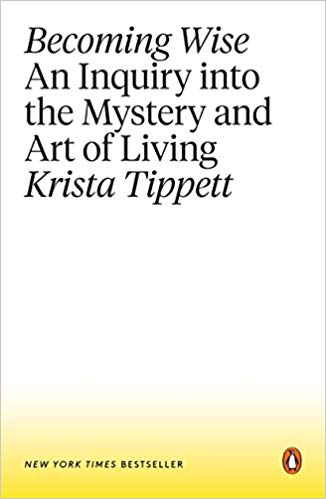
Krista Tippett is the award-winning host of On Being, a “social enterprise with radio show at its heart.” Over the years, Krista has hosted powerful, contemplative conversations on some of the biggest questions of our time with spiritual leaders, scientists and thinkers ranging from Brene Brown to the Dalai Lama. She draws lessons from these conversations together in her newest, luminous book Becoming Wise, which was published this spring.
Check out her course Krista Tippett on the Art of Conversation for more generous insights.
By Cal Newport
Recommended by Nick Fitz — Research Associate at the Center for Advanced Hindsight, Duke University
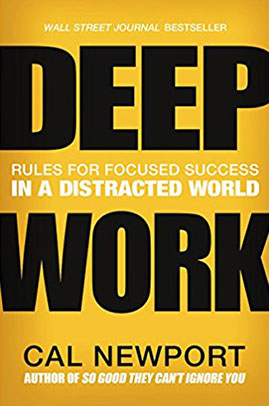
“We live in an age of distraction. Yet, if you’re working towards anything meaningful—whether that is launching a new program, completing a grant proposal, or documenting your social impact—you’ll likely need periods of intense focus to complete these cognitively demanding tasks. In his latest book, Cal Newport shows us that deep work is the superpower that will allow you to quickly master complicated information and produce better results in less time. If you’re aiming to work smarter in 2020, this book is for you.”
Build your business
By Eric Ries
Recommended by Ann Mei Chang — former Chief Innovation Officer, USAID
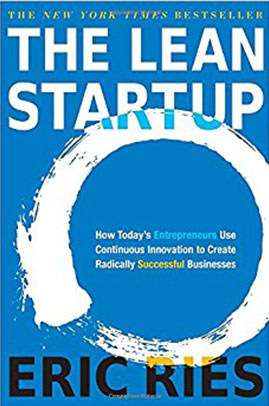
“The same modern tools and approaches that have made Silicon Valley a hotbed of innovation can help us deliver dramatically greater social impact at scale. The Lean Startup by Eric Ries encourages a shift from the traditional mindset of design-execute to a performance driven one of build-measure-learn.”
By General Stanley McChrystal

“What if you could combine the agility, adaptability, and cohesion of a small team with the power and resources of a giant organization? In Team of Teams, General Stanley McChrystal shows how, in an ever-changing environment, the smartest response is for the leadership of nonprofits and businesses is to invest heavily in how information flows and to empower small teams to act without relying on traditional hierarchical structures.”
by Seth Godin
Recommended by Acumen Academy
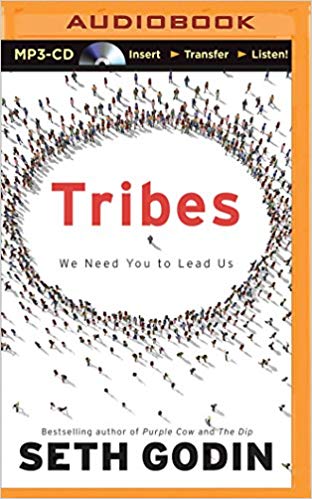
Seth Godin is a longtime friend of Acumen and the author of many books. We love them all, but one that the Acumen Academy team has been thinking about most deeply lately is Tribes: We Need You to Lead, which is an essential guide for anyone looking to grow and build communities.
In our latest collaboration, we created Seth Godin’s Leadership Workshop where you can find transformative insights from this best-selling author that are also applicable for the social sector.
By Daniel Lubetzky
Recommended by Meradith Leebrick — Associate Director of Social Enterprise, International Planned Parenthood Federation, Western Hemisphere
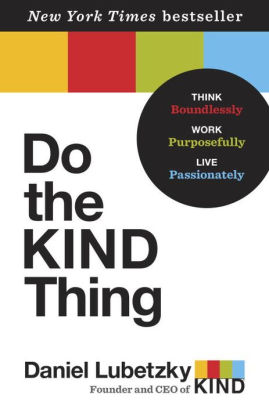
“Our work as the social enterprise team at the International Planned Parenthood Federation centers around transitioning our members, who are non-profit healthcare providers, into social enterprise models. Many of these organizations, who have previously been operating for decades as donor subsidized models, grapple with the tension of achieving social impact by expanding access to health services to vulnerable populations, while also generating revenue in the process. Do the KIND Thing has an interesting angle on explaining their philosophy of “AND” – advancing both social and business objectives in unison. Although they approach this philosophy from the vantage point of a traditional business entrepreneur incorporating social values into their business model, I have found it helpful and inspiring to integrate their messaging into the work with our members as they thoughtfully make the transition into social enterprise.”
by Pavirthra Mehta.
In 1976, Dr. Venkataswamy, one of the fathers of the social enterprise movement, founded Aravind Eye Care Hospital with the ambitious goal of ending curable blindness. Today, Aravind is the largest provider of eye care on the planet, with a unique business model that allows anyone to pay whatever price they are able for quality care. This book, written by Dr. V’s niece, is a story not only of the terrific medical accomplishments the hospital has achieved, but also the unique culture the organization has cultivated. One of Acumen’s earliest investments, Aravind remains a powerful model of a successful social enterprise that continues to elicit the best in human nature.
by Byron Sharp
Recommended by Grant Tudor
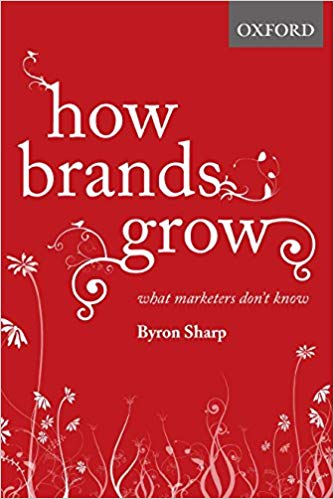
Grant Tudor is the founder of Populist, a marketing firm that brings together marketers and social innovators to sell critical products and services to underserved populations. He recommends How Brands Grow by Byron Sharp. “It looks and feels at first like a very industry-specific book,” Grant says, “However, it's very short and accessible, and it provides the best, most direct and brutally honest take on what exactly marketing can (and can't) do. For any social enterprise engaged in selling a product or service, it should be required reading. Leaning on lots of data, this book unforgivingly debunks the most common marketing myths and lays out exactly how marketing can help organizations to sell.”
Recommended by Diane Reinhold
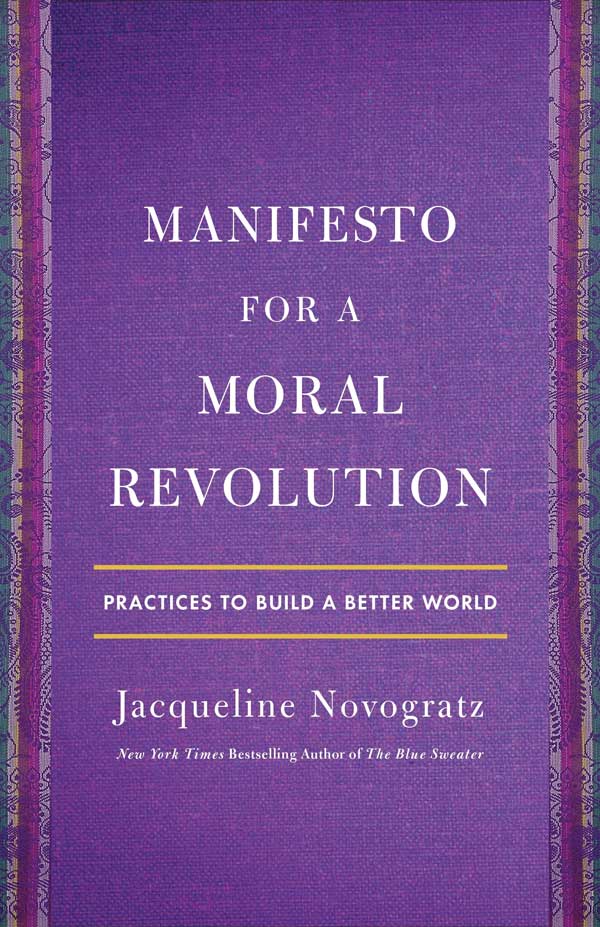
Diane Reinhold is a member of the Design Faculty at the Center for Creative Leadership. She recommends Influence for Nonprofit Leaders and What Millennials Want for Work. “Millennials are a real force in many social changes,” Diane observes. “They bring new energy, new ways of working , and new challenges for the established leadership. So I think this book would also be of great interest."
Master innovation
By David Stroh
Recommended by Becky Richeson — The Omidyar Group and a featured expert in our Acumen Academy Systems Practice course
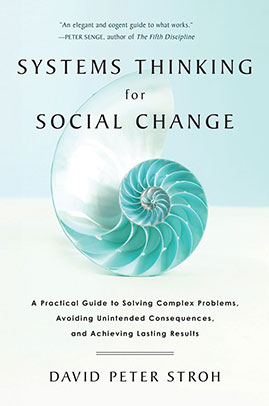
“Donors, leaders of nonprofits, and public policy makers usually have the best of intentions to create positive social change. But often their solutions fall far short of what they want to accomplish and what is truly needed. Systems Thinking for Social Change enables readers to contribute more effectively to society by helping them understand what systems thinking is and why it is so important in their work. This book is an excellent complement to our Systems Practice course developed with The Omidyar Group.”
by Adam Grant
Recommended by Melanie Duppins
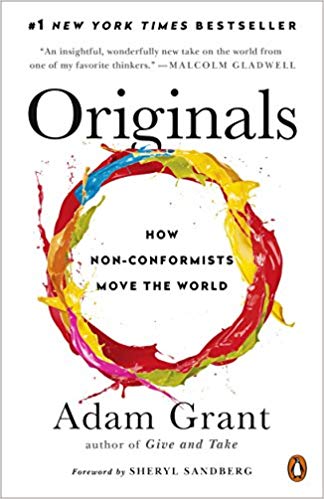
Melanie Duppins, VP of Human Capital & Teacher Outreach at DonorsChoose.org, recommends Originals by Adam Grant. “Originals provides a fresh look on what it means to be innovative, and debunks the myth that originality needs to be reserved for a handful of super creative people,” she says, “This book explains how producing original ideas is much more accessible than we think it is, and often requires us to do the opposite of what we're told produces new and creative work.”
To learn more about the founding story of DonorsChoose.org, check out Social Entrepreneurship 101 which features video lessons from their founder, Charles Best. And consider finding a project on their platform to support the learning of students this summer.
By Peter Wohlleben
Recommended by Becky Richeson — The Omidyar Group and a featured expert in our Acumen Academy Systems Practice course
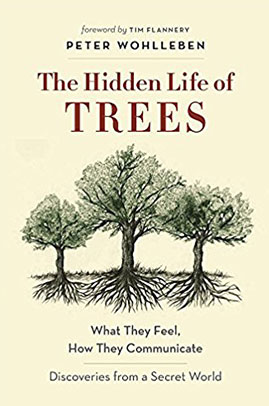
“We can learn a lot about complex social systems by studying complex natural systems and learning about phenomena like biomimicry,” says Becky Richeson of The Omidyar Group. In The Hidden Life of Trees, Peter Wohlleben shares his deep love of woods and forests and explains the amazing processes of life, death and regeneration he has observed in the woodland. He uncovers the science behind the previously unknown lives of trees and their communication abilities—and may just provide you with insights from the natural world that you can apply to our own complex human systems.”
By Cathy O’Neil
Recommended by Andrea Dinneen — Behavioral Research and Designer for Common Cents Lab with Dan Ariely
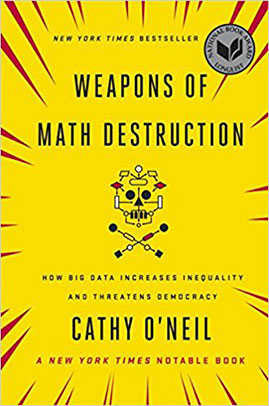
“Algorithms and big data are increasingly a part of our reality. They determine how decisions get made, what information we see, and whether or not we get a loan. Yet, as Cathy O’Neil reveals in this important book, the models being used today are opaque, unregulated, and uncontestable even when they're wrong. Most troublingly, they reinforce discrimination: If a poor student can't get a loan because a lending model deems him too risky (by virtue of his zip code), he's then cut off from the kind of education that could pull him out of poverty, and a vicious spiral ensues. Models are propping up the lucky and punishing the downtrodden, creating a "toxic cocktail for democracy.” If you care about issues of contemporary social justice, this book is a must-read.”
By Linda Babcock and Sara Laschever
Recommended by Aline Holzwarth — Director of the Center for Advanced Hindsight, Duke University.
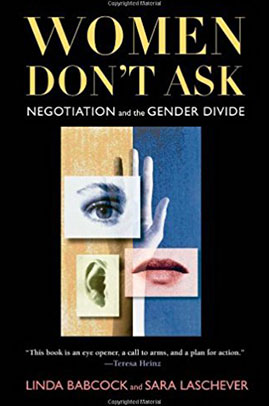
“This is not a new book (it was published in 2003), but it is a very important one that is (sadly) still painfully relevant 15 years later. Understanding the social forces that underlie (and reinforce) the gender pay gap can help create more informed, more effective solutions that address the root of the problem rather than its mere symptoms. Linda Babcock and Sara Laschever not only analyze the issue, but offer practical solutions to help close the gender pay gap.”
Grow as a leader
by Ursula Le Guin
Freely available here, this rather chilling short story from Ursula Le Guin is a thought-provoking meditation on our responsibilities towards others, the moral trade-offs that we can choose to make, and how we sometimes have to heed our conscience in ways that are difficult but necessary. If you are looking for a short but powerful reminder of our obligations to those who are less powerful or less fortunate, this otherworldly tale can pack a punch.
by Chris Anderson
Recommended by Acumen Academy
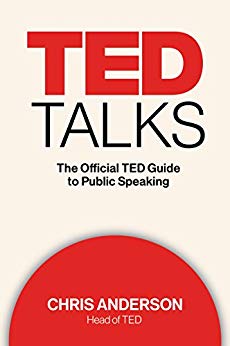
Chris Anderson is the chief curator of TED and just published the New York Times bestseller TED Talks: The Official TED Guide to Public Speaking. In this book, you’ll find his behind-the-scenes perspective on how to deliver a great talk. It’s an increasingly valuable skill for anyone wishing to make a difference. Whether you are a social entrepreneur pitching an investor, or a nonprofit leader delivering a critical message to a board, you want to make sure that you create a lasting impact on your audience. Our favorite tip? Don’t be an org bore.
You can watch Chris share his insights in our Master Class: Chris Anderson on Public Speaking.
by Loïc Wacquant
Recommended by Casey Anderson
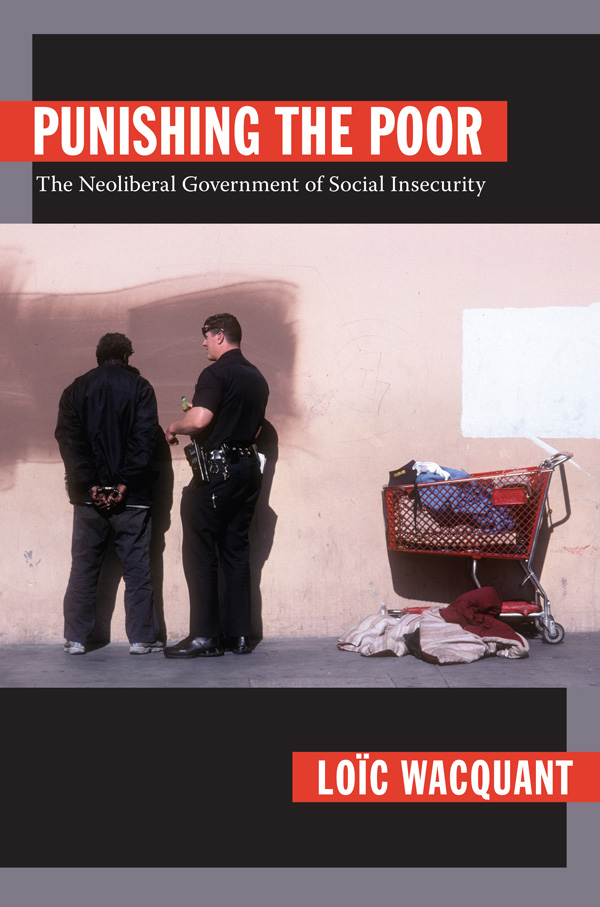
Casey Anderson is an instructional designer at Samaschool, a nonprofit designed to help people rapidly develop new skills needed to succeed in the digital economy. She recommends Punishing the Poor, a work of non-fiction and “a fascinating look at how and why the U.S. criminal justice system has become what it is today by examining the way politicians framed ‘the poor’ over time. Thoroughly depressing but deeply fascinating.”
If you know someone looking to level up their skills through digital work, check out Samaschool, which is part of Sama Group featured in our Social Entrepreneurship 101 course.
by Alan Paton
Recommended by Chris Walker

Chris Walker is the Social Innovations Director at Mercy Corps and an alumnus of Acumen’s Fellowship program. "I would encourage anyone interested in social change to read Cry, The Beloved Country by Alan Paton,” says Chris. “Set in South Africa under apartheid, this novel explores themes of justice (or the lack thereof), inequality, dignity, family, and efforts to cross racial, cultural, and economic divides. It's also one of the most beautifully written books in the English language, with prose that reads like poetry—making the story that much more unforgettable."
by Ta-Nehisi Coates
Recommended by Amon Anderson
Amon Anderson is the Associate Director for Acumen America, our newest initiative to harness the power of entrepreneurship to tackle poverty in the United States. He just finished Ta-Nehisi Coates’s Between the World and Me, a National Book Award Winner and stirring contemplation of race in America. Amon reflects: “I was struck by the lack of hope in the picture painted by Coates, but I suspect it's his intention to challenge us all with questions rather than preach to us with answers.” He suggests reading this book as an entry point to deeper reflection on questions of race and identity in the United States today.
by Bryan Stevenson
This book reads like a thriller (it’s hard to put down!) but it’s also a chilling portrait of the criminal justice system in America. Stevenson is a lawyer and co-founder of the Equal Justice Initiative who has spent his life representing poor clients and coming to understand the stories of those who sit on death row. He narrates in harrowing detail how the U.S. justice system is often unjust and explores the complicated factors of race and poverty that often land people in the country’s prisons.
by Anand Giridharadas
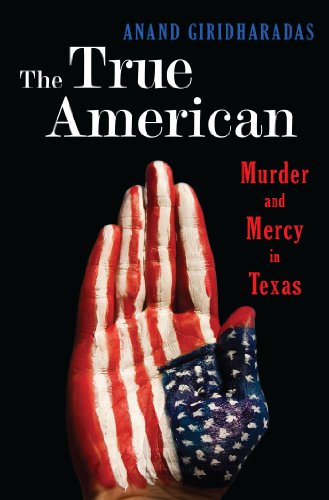
In the weeks following September 11th, Raisuddin Bhuiyan, an American of Bangladeshi origin, was working at a gas station in Texas when he was shot by gunman Mark Stroman. In his remarkable book, “The True American”, Anand Giridharadas traces what happened in the days and years following this attack. After undergoing many eye surgeries to alleviate his gun wounds, Bhuiyan chose to forgive Stroman in the name of Islam. The Washington Post calls this “a book about the many dimensions of America… It reminds you that there are some Americas where mercy flows freely, and other Americas where it has turned to ice.” Reading about Bhuiyan’s journey towards forgiveness even in the face of violent hate is an important lesson for all of us to keep in mind during these politically divisive times.
by Larissa MacFarquer.
A staff writer for the New Yorker, MacFarquer profiles extreme “do-gooders” or people who have taken drastic measures to care for others. She reveals the underlying skepticism that our society holds for people who commit their lives to raising over 20 adopted children, caring for a colony of lepers in India, or giving away almost all of their money to the effective altruism movement. In between these riveting portraits, she narrates the history and complicated legacy of doing good, leaving you with a deep appreciation for the complicated self-sacrifice that accompanies lives of extreme generosity.
by Caroline Moorehead
A nonfiction account of 230 women who became members of the French Resistance during World War II and then were collectively imprisoned in Birkenau, “A Train in Winter” is an important and untold story. The women banded together and found ways to care for each other and remain human under even the most inhumane conditions. Jacqueline Novogratz, Acumen’s founder, has said that: “For us, who live in a time where we're not connected to a cause resulting in life or death consequences, this story can be incredibly inspiring and humbling. The aha is that sometimes we are a part of a mission that may not be accomplished in our lifetime and probably won’t be, but if you don’t do it, then there is no one else to take your place and move the mission forward.”
by Katherine Boo
If you’re looking for perspectives beyond your own, Katherine Boo’s nonfiction account subtitled “Life, Death, and Hope in a Mumbai Undercity,” will transport you into Annawadi, a vibrant slum community in India. The numerous slum dwellers are rendered with great detail and dignity and you end the book with a clear sense of their complicated and distinct humanity. A winner of the Pulitzer Prize in 2012, this book is worth a read if you haven’t gotten to it yet.
by Leslie Jamison
Leslie Jamison’s 2014 collection of essays is far-ranging, but the primary subject is empathy. Her topics are bizarre and intriguing, stretching from botflies to endurance races to medical acting. They push us to think about more extreme ways we can embody and understand other people’s stories, perspectives and pain. “Empathy isn’t just something that happens to us — a meteor shower of synapses firing across the brain,” she writes, “it’s also a choice we make: to pay attention, to extend ourselves.”
by Terry Tempest Williams
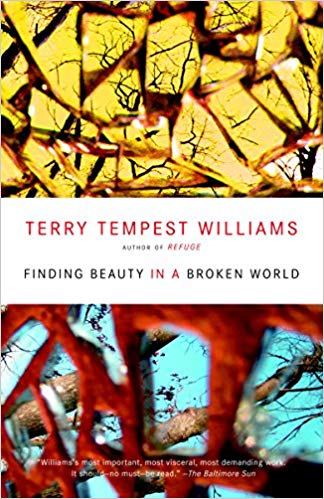
This is a book written at a moment when poet Terry Tempest William’s “world is splintered, but her heart was full.” After a decade of hardships including suffering the death of her brother, witnessing the environmental degradation of her native Utah and Wyoming, and witnessing killing and genocide in places like Rwanda, she pieces together a collection of essays in the spirit of a mosaic. Indeed, she goes to Italy to work in a tile shop and the lessons she learned from this apprenticeship inform the collection. Critic Adam Federman notes that it is “the confluence of human and ecological genocide that perhaps unifies Williams’s many narratives in this kaleidoscopic book.” By the end, she has adopted a son from Rwanda and gained a better sense of how things that are broken can also be used to make us whole.
by Brené Brown
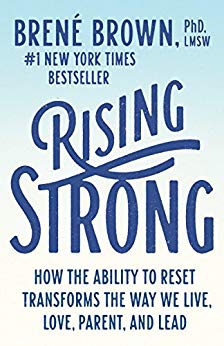
Brene Brown’s TED talk on The Power of Vulnerability is the 4th most watched TED talk of all-time. Her latest book is a self-described chronicle of “what it takes to get back up (when we fail) and how owning our stories of struggle gives us the power to write a daring new ending.” Grounded in research, this book is also deeply empowering and inspires necessary self-reflection on how we must dare greatly and fail often if we are to achieve anything meaningful.
By Tenzin Gyatso, dalai lama, and Howard Cutler.
Recommended by Andrea Gonzalez, Acumen Colombia Fellow
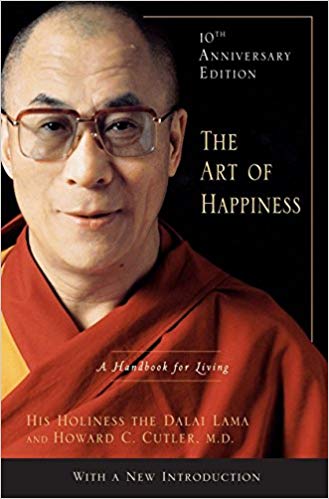
“In this book I learned that happiness is a state of mind and is part of our relationship with everything around us. When I read it, I understood that the mission of the world is happiness only that we do not know how to look for it. Because it is in everyone, and if we knew how to look for it, most of the world's problems would end. At the same time, the book talks about the power of compassion and empathy, and the power to understand and to accept everything that happens in our lives.”
